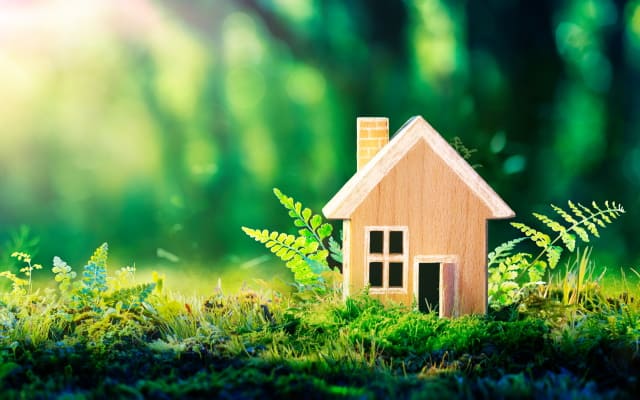It’s generally believed that not everyone today is happy with the traditional housing concept. That said, many individuals no longer want to endure a traditional house’s inefficiency, negative environmental impacts, carbon-based fuels, and the like.
As a consequence, more individuals are said to be opting for eco-friendly, energy-efficient house designs. It’s no secret that eco-friendly houses are all the rage these days. It’s becoming more popular as a result of its numerous advantages and the general public’s views towards sustainability and energy efficiency.
Do you plan to build or buy a sustainable house in the future? If so, you can start by looking for the following features below:
1. Smart Lighting
Sustainable homes use lighting in the most sustainable approach. They typically incorporate sustainable lighting design that enhances efficiency and conserves natural resources without sacrificing quality.
Additionally, daylighting seems to have a significant influence on sustainability. The house must be cleverly designed to let natural light in. Such a strategy creates a naturally illuminated and cost-effective house.
With a smart lighting system, energy consumption may be decreased while still adequately meeting the demands of the house’s occupants.
2. Wastewater Treatment And Reuse
In a sustainable house, water is a precious commodity that should be managed well. As a result, many homeowners resorted to eco-friendly means of storing water, such as using water tanks. They normally get their tanks from the web site of a tank manufacturer to assure dependability, quality, and courteous service. But aside from that, there’s another way to manage water—water treatments.
To reduce water consumption sustainably, people turn to wastewater treatment and reuse. Water treatment is intended to protect residents and the environment from the hazardous and poisonous substances contained in wastewater.
There are several advantages to lowering water use at home in a sustainable manner. This includes cheaper water costs or fewer hours spent acquiring water, less strain on local water supplies, and more drinkable water accessible for acceptable needs such as drinking, bathing, and cooking.
3. Smart Thermostat
Smart thermostats operate by managing the indoor environment of a home to an optimum level. It regulates a house’s air-conditioning and ventilation processes to maintain a comfortable indoor temperature for the occupants.
Smart thermostat installation benefits home sustainability. Having the home’s temperature regulated means reducing the amount of money and resources that’d otherwise be squandered on unnecessary heating and cooling. With a smart thermostat, homeowners can establish and maintain their home’s perfect temperature conditions easily and efficiently.
4. Design Decisions That Foster Lower Operating Costs
Sustainable houses are designed to be less expensive. Its homeowners may save a lot of cash by implementing energy-efficient measures such as increasing their usage of natural light, installing solar heating systems, and doing countless other things.
Sustainable houses are also long-lasting. This implies that a house constructed by a skilled, sustainable home builder will also be substantially less expensive to maintain in the long run. Such houses are constructed using only the finest, long-lasting recycled materials, ensuring they’ll survive for a long time.
5. Lower Environmental Footprint
In more ways than one, sustainable homes have a much-reduced environmental footprint. Sustainable houses produce far less trash than conventional dwellings. They’re designed from the ground up to be as efficient in their energy and resource consumption as feasible. They also produce lower carbon dioxide emissions, which is beneficial if you are concerned about your carbon impact.
6. Energy-Efficient Appliances
The ongoing rise in energy use has a detrimental influence on the environment. Fortunately, energy-efficient household appliances can assist in mitigating such effects.
Energy-efficient appliances may help households save money by reducing their power usage, eventually resulting in cheaper energy expenses. Aside from that, they’re environmentally friendly and can provide a return on investment.
With smart devices hitting the market, it’s rather easier to locate appliances with power-saving options these days. It’s said that using energy-efficient products could reduce a home’s monthly energy expenditures by up to 13%.
7. Higher Property Value
Being a sustainable house may be a terrific selling factor as well as a great method to raise the value of a property. Many purchasers will be willing to pay considerably more for a house that’s been constructed sustainably, not just for the environmental advantages but also for the long-term gains. When thinking about how much less they’ll have to spend on electricity and upkeep, paying a little more for a sustainable house might be a smart investment.
Final Thoughts
Sustainable homes meet the needs of the people who live in them without using up too many of the world’s resources. They aren’t just constructed to benefit the present generation; they’re also constructed for generations that follow.
So, if you’re still on the fence about settling for a sustainable home, the features listed above could have convinced you. Before making a decision, make sure you understand everything there is to know about sustainable housing and design and consult with a skilled contractor.




